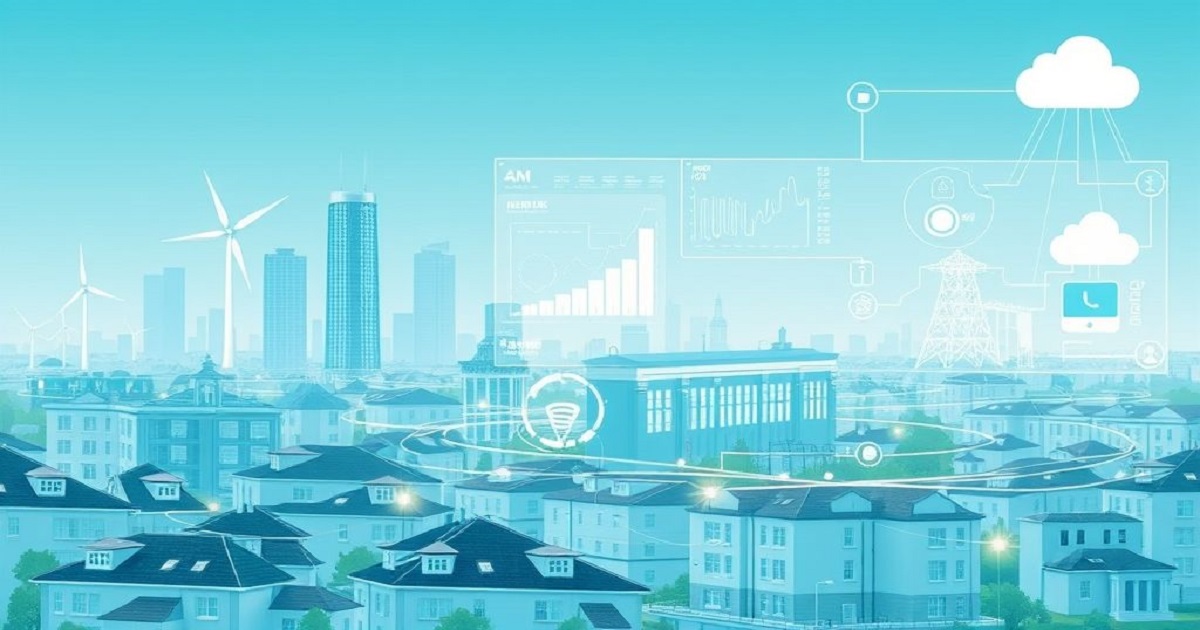Intelligent Design and Optimization of Distributed Energy Systems and Smart Infrastructure
A special issue of Designs (ISSN 2411-9660). This special issue belongs to the section "Energy System Design".
Deadline for manuscript submissions: 30 April 2026 | Viewed by 504

Special Issue Editors
Interests: smart grid and smart energy systems; smart homes and home energy management systems (hems); distributed energy resources and energy-on-demand; optimization and power grids; power flow control and power flow coloring; power system stability and control; demand response; energy storage and energy balancing; distributed sensing and control; smart energy management systems and resilient microgrids
Special Issues, Collections and Topics in MDPI journals
Interests: predictive control; network coding; evolutionary multi-objective optimization; game theory; smart energy distribution; smart homes; wireless communications; cyber–physical systems
Special Issues, Collections and Topics in MDPI journals
Special Issue Information
Dear Colleagues,
The transformation of energy systems and infrastructure is accelerating due to increasing demands for sustainability, resilience, and digitalization. This Special Issue focuses on the intelligent design, optimization, and integration of distributed energy systems (DESs) and smart infrastructure, aiming to address the challenges and opportunities associated with decentralized power generation, multi-energy coordination, and smart urban environments.
The purpose of this issue is to synthesize innovative research on data-driven modeling, AI-enabled decision-making, real-time optimization, and cyber–physical system integration in energy systems. We welcome contributions that explore novel algorithms, tools, and frameworks that improve the planning, operation, and control of DESs and promote smart, efficient, and adaptive infrastructures.
This Special Issue is intended to supplement the existing literature by providing a holistic view of how intelligent technologies can enhance the interaction between energy systems and the broader built environment. It will emphasize interdisciplinary approaches involving electrical engineering, control theory, data science, and civil infrastructure, thereby encouraging collaborative research between academia and industry.
Topics of interest include, but are not limited to, intelligent energy management systems, distributed optimization, smart grid applications, multi-agent control, energy storage, infrastructure resilience, and digital twin technology in smart cities.
Dr. Saher Javaid
Prof. Dr. Yuto Lim
Guest Editors
Manuscript Submission Information
Manuscripts should be submitted online at www.mdpi.com by registering and logging in to this website. Once you are registered, click here to go to the submission form. Manuscripts can be submitted until the deadline. All submissions that pass pre-check are peer-reviewed. Accepted papers will be published continuously in the journal (as soon as accepted) and will be listed together on the special issue website. Research articles, review articles as well as short communications are invited. For planned papers, a title and short abstract (about 250 words) can be sent to the Editorial Office for assessment.
Submitted manuscripts should not have been published previously, nor be under consideration for publication elsewhere (except conference proceedings papers). All manuscripts are thoroughly refereed through a single-blind peer-review process. A guide for authors and other relevant information for submission of manuscripts is available on the Instructions for Authors page. Designs is an international peer-reviewed open access semimonthly journal published by MDPI.
Please visit the Instructions for Authors page before submitting a manuscript. The Article Processing Charge (APC) for publication in this open access journal is 1600 CHF (Swiss Francs). Submitted papers should be well formatted and use good English. Authors may use MDPI's English editing service prior to publication or during author revisions.
Keywords
- distributed energy systems
- smart infrastructure
- intelligent optimization
- energy management systems
- AI and machine learning in energy systems
- multi-agent control
- cyber–physical systems
- smart cities and digital twins
- renewable energy integration
- infrastructure resilience
Benefits of Publishing in a Special Issue
- Ease of navigation: Grouping papers by topic helps scholars navigate broad scope journals more efficiently.
- Greater discoverability: Special Issues support the reach and impact of scientific research. Articles in Special Issues are more discoverable and cited more frequently.
- Expansion of research network: Special Issues facilitate connections among authors, fostering scientific collaborations.
- External promotion: Articles in Special Issues are often promoted through the journal's social media, increasing their visibility.
- Reprint: MDPI Books provides the opportunity to republish successful Special Issues in book format, both online and in print.
Further information on MDPI's Special Issue policies can be found here.





